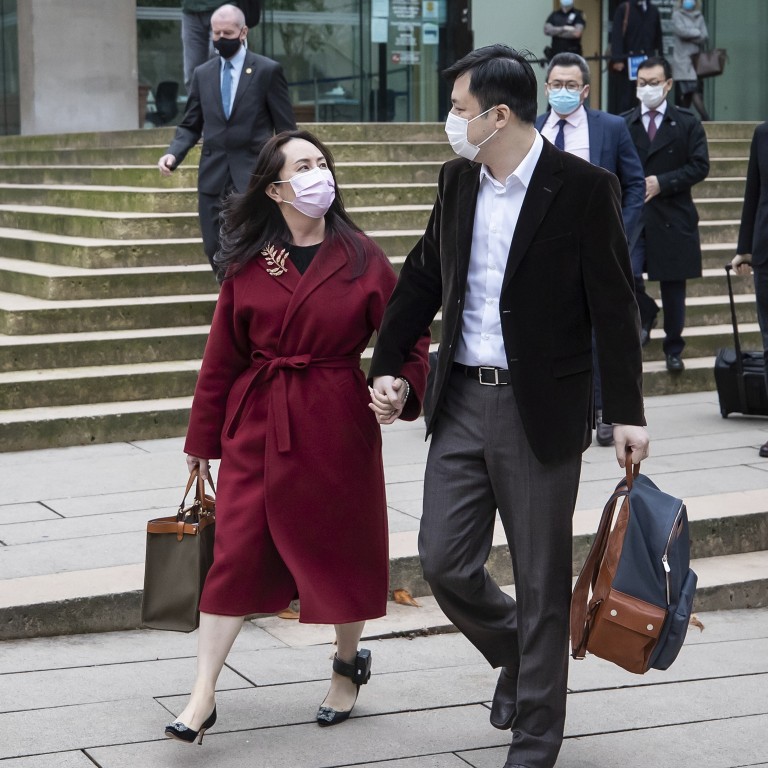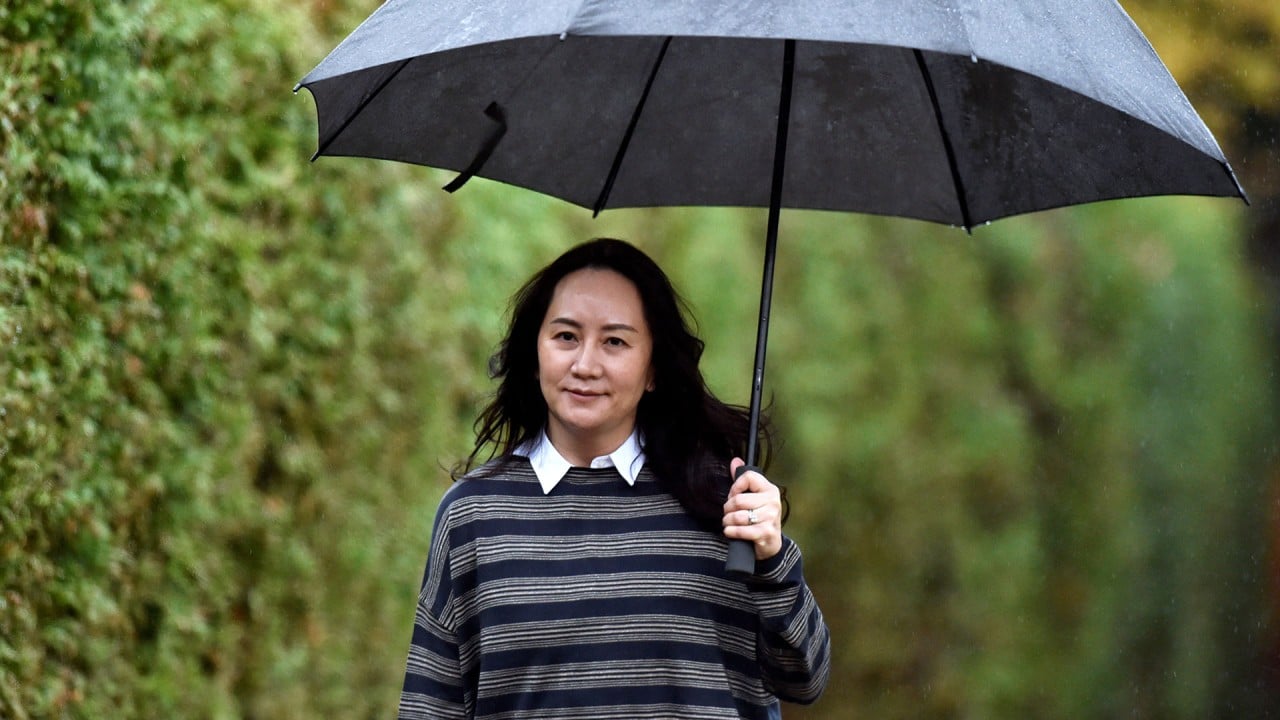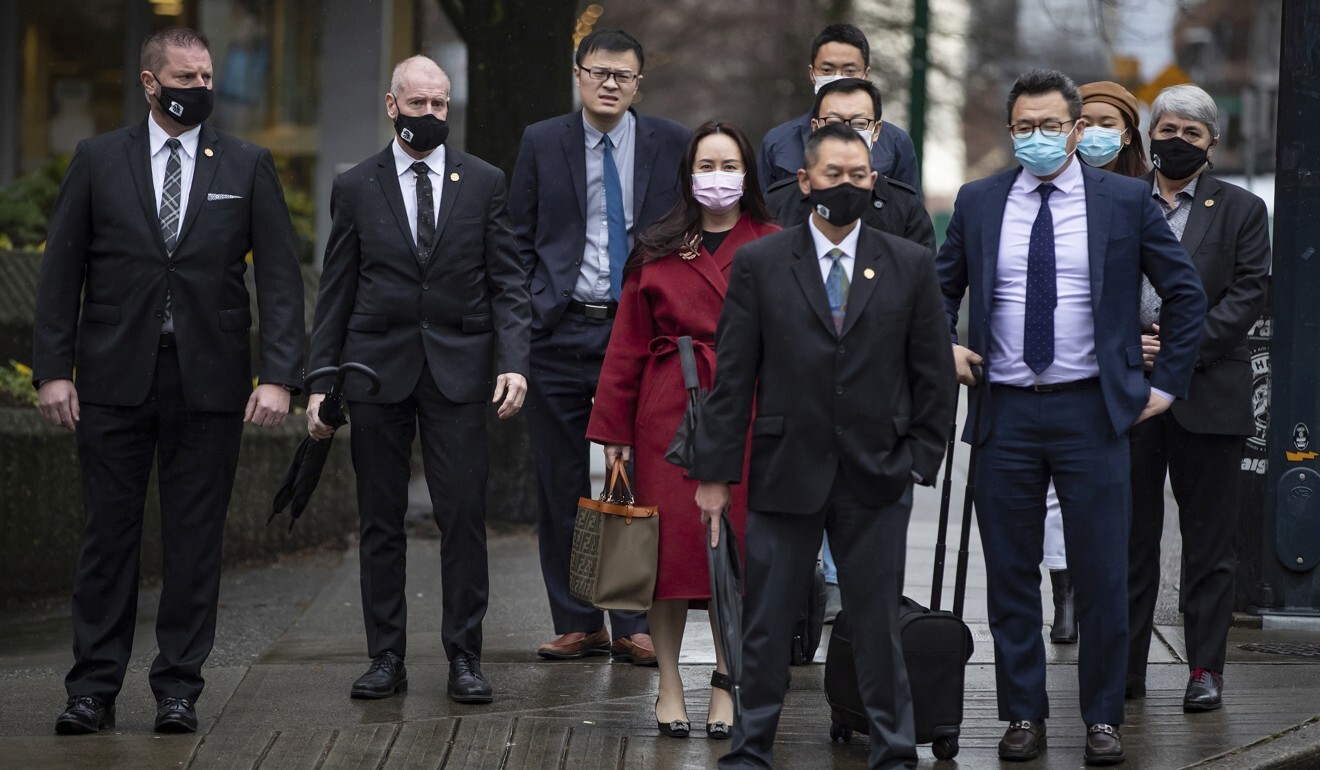
Senior Canadian border officer denies destroying Meng Wanzhou documents, rejecting concealment claims
- Roslyn MacVicar, former Pacific chief of the border agency, also denied telling staff not to create documents about Meng for fear they would be made public
- But a fellow officer earlier testified that MacVicar told her not to make a summary of Meng’s case, in case it was accessed under freedom-of-information laws
A former high officer in Canada’s border agency has denied destroying documentation of its handling of Meng Wanzhou, one of a series of accusations levelled by the Huawei Technologies’ executive’s lawyer in her extradition case on Friday.
Roslyn MacVicar, the Canada Border Services Agency’s (CBSA) Pacific regional director general until she retired in March, also denied concealing information, and directing her staff not to create documents about Meng’s case for fear they would be made public.
Meng’s lawyers have been trying to show that her treatment by the CBSA and the Royal Canadian Mounted Police (RCMP) before her arrest at Vancouver’s airport on January 1, 2018, were part of a covert operation, directed by the American Federal Bureau of Investigation and designed to gather evidence against her for US prosecutors.
They say it amounted to an abuse of process, and the US extradition bid should be thrown out by the Supreme Court of British Columbia in Vancouver as a result.
Meng’s lawyer Mona Duckett referred to notes taken by a CBSA aide, regarding a meeting about Meng attended by MacVicar in Ottawa on January 7, 2019. “Start gathering but don’t create,” the notes say.
MacVicar denied this was her direction to staff about Meng’s case, and she had no recollection of saying it. On Wednesday, CBSA officer Nicole Goodman had testified that MacVicar told her not to create a summary of Meng’s treatment, because they might be accessed under freedom-of-information laws.
Duckett said to MacVicar on Friday: “I would suggest that you did in fact direct your staff not to create any records for fear of them being disclosable.”
“I would never say that,” MacVicar replied. “I did not say that, and it is inconsistent with anything I’ve ever said in my capacity as a public servant.”
I would suggest that you did in fact direct your staff not to create any records for fear of them being disclosable
Duckett also asked MacVicar about a December 20, 2018, email she wrote about the handling of Meng by her staff. The email was in response to questions from CBSA bosses in Ottawa that have subsequently been scrutinised in the extradition case, including how the CBSA first became aware that Meng was on her way to Canada, and why one of MacVicar’s officers asked Meng about Huawei’s business in Iran.
MacVicar said she composed her email after getting information from another senior CBSA staffer at the airport, but she had no record of how this was conveyed to her.

“Possibly you got a document and you destroyed the document after you used it to create this email,” said Duckett. MacVicar simply responded: “No.”
Earlier on Friday, the CBSA’s Goodman, whose team intercepted and examined Meng before her arrest, said that what she considered a “routine” case had escalated into an “extraordinary” situation.
Meng witness gave incomplete evidence, had illicit contact with lawyer
Goodman, chief of passenger operations at the airport, said she never could have imagined the level of scrutiny she was under, during cross-examination by Duckett.
Duckett asked Goodman about the fact she did not take contemporaneous notes of many of her interactions regarding Meng’s case.
“Hindsight is 20/20,” said Goodman. “At the time, when this exam was taking place, to me it’s just another exam, to me it’s routine.
“This aftermath is extraordinary – that I’m testifying on a national security exam – because I deal with them all the time. Organised crime, cartel members. This is a regular practice for me or my team.”

04:43
How the arrest of Huawei CFO Meng Wanzhou soured China's relations with the US and Canada
Goodman had been in the witness box for four days. It was a bruising experience for the veteran border officer.
On Thursday, it was revealed that Goodman had illicitly spoken to a Canadian government lawyer about her testimony this week, against the instructions of the judge that she not discuss it with anyone. Goodman then admitted to Duckett that she had given “incomplete” testimony, as a result of the concerns she raised with the government lawyer, namely that her evidence might include privileged information.
Thursday ended with Goodman sobbing in the witness box as Duckett pressed her about the veracity of her evidence and her recollections in the absence of notes.
“Would I wish that I had notes now?” Goodman said on Friday. “Absolutely. But at the time, I never would have envisioned that I would be here.”
Meng, who is Huawei’s chief financial officer and the daughter of company founder Ren Zhengfei, was arrested after arriving on a flight from Hong Kong. In the three hours before she was arrested by RCMP officers acting on a US warrant, Meng underwent the contentious CBSA examination, during which she was questioned, her electronic devices seized and the passwords for her two mobile phones obtained.
Would I wish that I had notes now? Absolutely. But at the time, I never would have envisioned that I would be here
This occurred before Meng was told she was about to be arrested, and given the opportunity to seek legal counsel. The passwords were subsequently given to the RCMP, in breach of Canada’s privacy law.
Duckett asked Goodman about a CBSA memo circulated among senior staff in the weeks after the arrest that asserted Meng had voluntarily handed over her phones, that they were obtained in a normal fashion, and CBSA staff should not say the RCMP led the operation at airport.
Duckett asked if the document was an “attempt to recast the true facts of what happened”.
Goodman said she had nothing to hide and she felt “everything was done in good faith”. But she said the document “seems like it is missing a lot of information in my view”.

The US wants Meng to stand trial on fraud charges in New York. She is accused of defrauding HSBC by lying about Huawei’s business dealings in Iran, thus putting the bank at risk of breaching US sanctions on the Middle East country.
Meng’s arrest outraged Beijing and triggered a collapse of China’s relations with Canada and the US.
Thursday marked the two-year anniversary of China’s arrest of Canadians Michael Kovrig and Michael Spavor, who are accused by Beijing of espionage. But Canada’s government regards them as hostages, taken in retaliation for the arrest of Meng.
Reports emerged last week that Meng was negotiating with the US Department of Justice about a deal that would allow her to return home to China under a deferred prosecution agreement. Such agreements typically require an admission of wrongdoing and some form of cooperation in exchange for charges being dropped in the future.
The reported negotiations have not been addressed in court.
Associate Chief Justice Heather Holmes adjourned the hearing until Monday morning. She granted Meng the right to attend Monday and Tuesday’s hearings by phone, something another of her lawyers, Scott Fenton, said was necessitated by “a personal matter that has arisen”, about which he had to remain “somewhat circumspect”.

